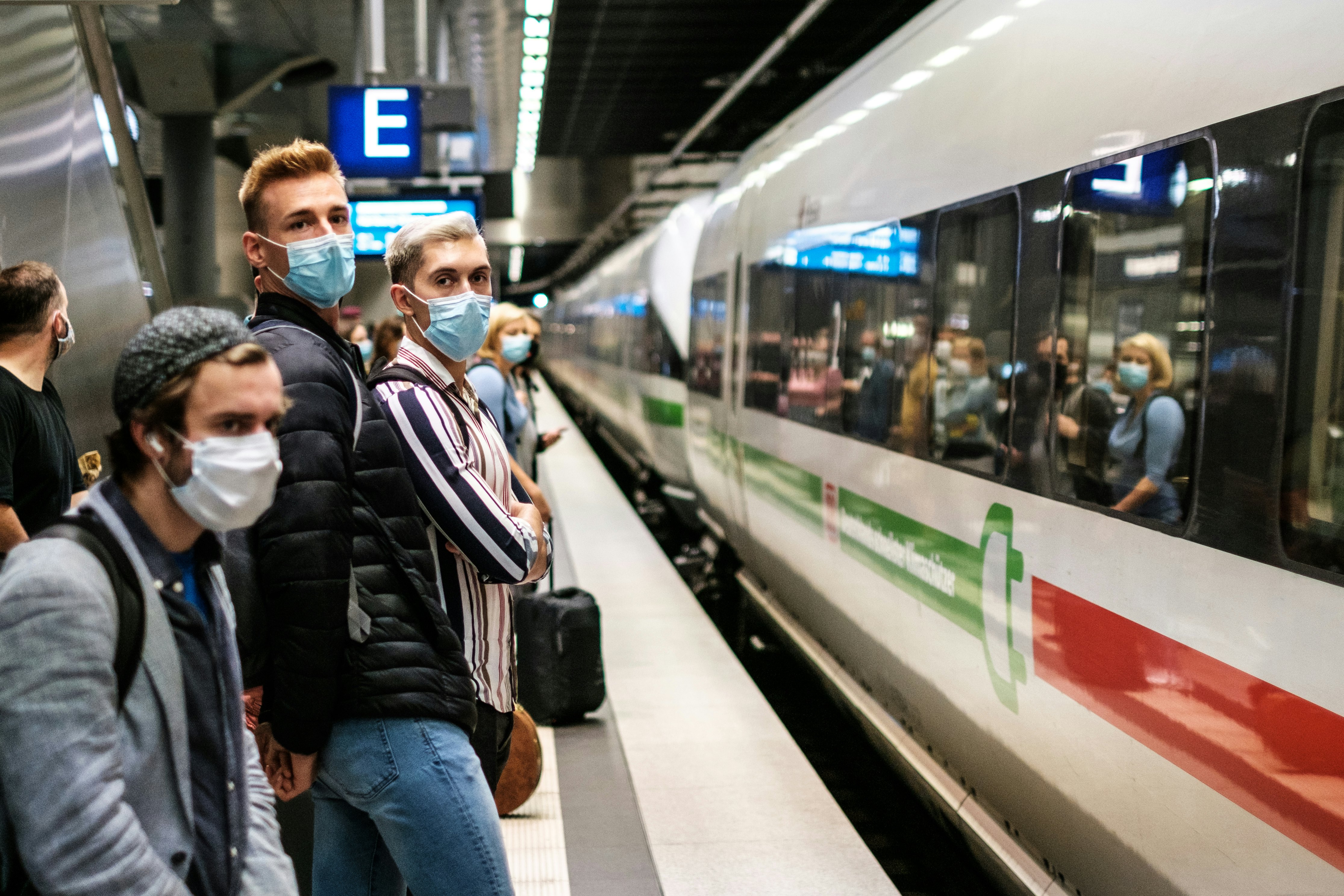Traveling to Germany? 6 questions you need to ask before you go

Jul 26, 2022 • 4 min read

If you're heading to Germany this summer, here are the questions you should ask yourself © Luis Alvarez / Getty Images
Oktoberfest, Christmas markets and ski trips to the Alps make Germany a go-to year-round destination — but this beautiful country truly shines in the summertime.
However, COVID-19, European flight chaos and extreme weather across the continent are all factors that could impact travelers heading there this summer and beyond. Do you have a trip planned, or are considering going to Germany soon? Here are 6 questions to ask yourself before you go.
1. Have you packed FFP2 masks?
Wearing a medical-grade mask is required on flights heading in and out of Germany during boarding, on board the plane, and while disembarking. Only medical-grade masks (FFP2, KN95 and N95 masks without values) are permitted, though there may be some variances when leaving Germany based on where you’re heading. According to German airline Lufthansa, on all flights to and from the US, all passengers over the age of two are required to wear masks.
Pack at least a few masks, as you’ll also need FFP2 masks once you arrive: passengers are required to wear them on public transport across the country. Get some in advance so you’re set for your flight and the journey to your accommodation, but more will be readily available in pharmacies and shops to stock up on when you arrive.

2. Have you got a €9 public transport pass?
When Germany announced that it would launch a new €9 monthly travel pass for the summer, it made headlines around the world, delighting locals and travelers heading to the country.
The ticket, which applies to the entire calendar month when it was purchased, permits the holder unlimited travel on all buses, U-Bahns, S-Bahns, trams and local and regional trains. However, it doesn’t apply to long-distance intercity trains like IC or ICE.
Regardless, the pass is an incredible deal for anyone visiting Germany, allowing travelers the freedom to explore as much as possible on local transport. The ticket offer only runs until August 31, 2022, so make the most of it if you’re visiting next month.
Explore Germany for €9 this summer: these are the best itineraries
3. Are you prepared for hot weather?
While Germany generally enjoys hot summers, Europe has already experienced a deadly heat wave in July. Much of the extreme heat has so far impacted Portugal, Spain and the UK, but Germany has also reached temperatures as high as 38 C (100 F).
The heat has broken for now, but August may bring more hot days. Be ready for high temperatures with clothes that will keep you comfortable, and pack a refillable water bottle and use it frequently.
How to keep cool while traveling as extreme heat waves continue across the US and Europe

4. If it’s hot, have you planned a beach trip?
A beach day may not be the first thing that comes to mind for a trip to Germany, but the country is home to incredible lakes, city beaches and coastlines on both the Baltic and North seas. Join locals as they cool down at some of the country’s most beautiful swimming spots.
5. Is your flight with Lufthansa?
It’s no secret that Europe is among the regions suffering from airport chaos; passengers have been impacted by long queues, lost bags and canceled flights. Germany’s flag carrier Lufthansa has canceled thousands of flights this summer, within Germany and on short-haul journeys, due to staffing issues and strike action. A ground staff strike will take place on Wednesday, which will lead to the cancellation of most of the airline's flights to and from Frankfurt and Munich airports, and could have impacts lasting until the weekend. While the airline does inform passengers of cancellations and, if possible, will rebook you on another flight, it’s always best to check your flight status to make sure everything is set before you fly.
Lufthansa is also advising passengers to use their online services, as digital check-in is permitted 23 hours before departure. There is also a free digital document check service for COVID-19 documentation that can be used between 72 and 8 hours before you travel. This can be used to show proof of vaccination or a test if that’s required for your journey.
Airport chaos in Europe: how to manage delays, cancellations and strikes

6. What color is your luggage?
If you’re traveling through Frankfurt Airport this summer, make sure your bag isn’t basic black. According to the Guardian, German media has reported that the airport — which is a major transfer hub in Europe — attributed some of the lost baggage delays to too many similar-looking bags, as they take longer to identify and return to their owners.
While the airport’s reasoning for baggage chaos has raised some eyebrows, it’s a good reminder to make sure that your luggage is clearly identifiable to you. When a passenger’s luggage is lost, they must fill out a form describing what their bag looks like: colorful bags, stickers, tags and other personalizations can make yours easier to identify — and therefore return to you.
Another option is trying to pack only a carry-on bag, but if you need more luggage and want to be as safe as possible, you could always try electronic baggage tags.






